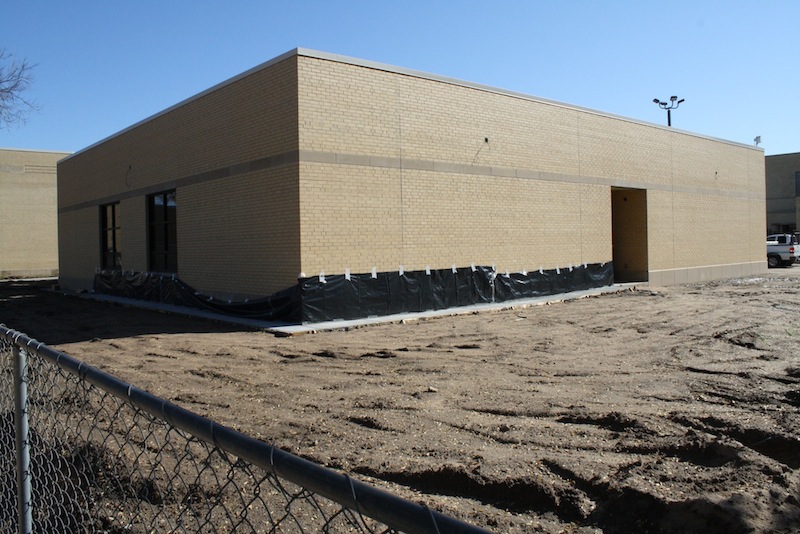When it comes to protecting K-12 schools and students from earthquakes, tornados, or flooding, many school districts continue to resist mandating the inclusion of safe rooms or storm shelters in new and existing buildings. But that may be changing.
An Illinois law that took effect January 1 requires all new schools to have storm shelters. Illinois joined Alabama as the only states that mandate storm shelters or safe houses in new schools.
Oklahoma, ground zero for deadly tornados, has rejected such mandates for budgetary and political reasons. Governor Mary Fallin has backed a proposal to allow local governments to raise their debt limits if they want to use bonds to fund shelters. (Oklahoma City already requires shelters.) An advocacy group called Take Shelter has been trying to get a petition on the statewide ballot to raise $500 million through franchise taxes to put safe rooms in every school in the state.
Money is main reason why safe houses and storm shelters at schools aren’t more widely accepted. A 2013 article published in the Wall Street Journal estimated that it would cost $1 billion to install safe rooms in the 1,100 Oklahoma public schools that didn’t have them at the time.
Protecting buildings from catastrophic events can quickly erode a district’s general revenue funds. Krisztina Tokes and Mark Hovatter of the Los Angeles United School District have estimated that 21% of the $4.3 billion they said was needed annually for school construction would be allocated for earthquake upgrades.
Most AEC professionals would agree that preventive expenditures are a lot cheaper than rebuilding after a natural disaster hits: just ask anyone in the New York metropolitan area who suffered through Hurricane Sandy, which caused an estimated $50 billion in property damage in late 2012. With so much talk about the possible relationship between climate change and more catastrophic weather events, some ISDs are reconsidering the wisdom of waiting and seeing.
 Construction of a safe room at a Wichita, Kan., school. Photo: FEMA
Construction of a safe room at a Wichita, Kan., school. Photo: FEMA
Last November, voters in Carl Junction, Mo., approved a $16.5 million bond issue that will help pay for three storm shelters in the school district.
By the end of its current construction bond financing in 2016, Wichita Public Schools will have safe rooms that can withstand an EF-5 tornado in every attendance center it operates, even though safe rooms aren’t mandatory in Kansas. Julie Hedrick, the district’s Facilities Division Director, says that a safe room can add up to $50/sf to the cost of new construction.
As for existing schools, Hedrick says it’s usually not cost effective to add a safe room as part of a renovation. But she says that, high school wrestling rooms—which usually don’t have windows and pad their walls and floors—have been upgraded to safe rooms relatively inexpensively.
Related Stories
| Aug 11, 2010
Cherokee Nation center employs eco-friendly features
Three new schools for K-12 students are the focus of a $108 million, 473,000-sf Cherokee Nation multipurpose complex based in Cherokee, N.C. Designed by Padgett & Freeman Architects and built by BE&K Building Group, the center was designed to reflect the art and heritage of the Cherokee people, evidenced by the seven-sided shape of the two courtyard areas and traditional basketweave pat...
| Aug 11, 2010
Replacement school puts old school's materials to good use
Replacing an existing school in the University School District near St. Louis, Mo., the new Barbara C. Jordan Elementary School will accommodate up to 500 students in 24 classrooms. The $13 million school spans 64,834 sf and will use recycled elements from the old building, including mosaic tiles from water fountains, an entryway tile mural, and a freestanding masonry bench.
| Aug 11, 2010
Hillside school sports exciting shape
An education facility for 1,200 students and 300 teachers will grace a hillside in the Faroe Islands town of Torshavn. The 19,200-sm Faroe Islands Education Centre, designed by Copenhagen-based Bjarke Ingels Group, will have a panoramic view overlooking the sea, mountains, and harbor. The building's vortex shape radiates toward its surroundings while drawing attention to the center of the school.
| Aug 11, 2010
New Union City school to use remnants from old building
With 35 classrooms, a media center, science labs, and music rooms, Columbus Elementary School #3 in Union City, N.J., is being built on a confined site, so designer RSC Architects, in conjunction with HOK, will implement underground parking and a rooftop playground. RSC Architects also salvaged classical porticos from a former school at the site; they will be reused to create dramatic entryways...
| Aug 11, 2010
High-density planning allows abundant open space
Gilroy Unified School District's new Christopher High School in California opened its first phase this fall. The 1,800-student, 231,000-sf facility was designed with a high-density site plan that allows for both on-site sports fields and undeveloped open space. BCA Architects of Fremont, Calif., with Gilbane Building Companies as CM, collaborated with numerous user groups to plan the two-story,...
| Aug 11, 2010
And the world's tallest building is…
At more than 2,600 feet high, the Burj Dubai (right) can still lay claim to the title of world's tallest building—although like all other super-tall buildings, its exact height will have to be recalculated now that the Council on Tall Buildings and Urban Habitat (CTBUH) announced a change to its height criteria.
| Aug 11, 2010
Courtyard connects new and remodeled schools
Good Fulton & Farrell Architects of Dallas designed a major expansion and renovation at the Dallas Academy in Texas. The 22,900-sf addition serves as the school’s new front door and includes a library, student assembly area, cafeteria, seven classrooms, and administrative offices. The school’s existing 14,560-sf building was renovated to accommodate a lower school component, and...
| Aug 11, 2010
Connecticut high school gets a expansion and renovation
The Morganti Group, Danbury, Conn., is managing the construction of a $41 million addition and renovation project at Newtown (Conn.) High School. Designed by Fletcher Thompson, Shelton, Conn., the project consists of a 70,000-sf addition and 30,000 sf of renovations to the gymnasium and interior spaces.
| Aug 11, 2010
School district plans net-zero building
Camas (Wash.) School District is planning to utilize one of three energy sources—photovoltaics, wind turbine, or geothermal—to help take its new community high school completely off the grid. The school district commissioned Interface Engineering to explore all three options for the project, which is scheduled to break ground in August.
| Aug 11, 2010
LA high school takes design cue from historic Mexican architecture
The Los Angeles Unified School District recently opened the $75 million Felicitas and Gonzalo Mendez Learning Center, a high school in the Los Angeles neighborhood of Boyle Heights, near Little Tokyo. Designed by Nadel Architects in a joint venture with Barrio Planners Inc., the 114,000-sf school is vertically integrated, allowing the campus to fit on a compact, six-acre site.







